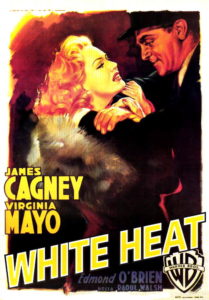15 December 2016
“Made it, Ma! Top of the World!” Part II
What do Lagarde, Cahuzac, Strauss-Kahn and Rato all have in common?
by Neil Tidmarsh
 What do the following four people have in common: Christine Lagarde, Jérôme Cahuzac, Dominique Straus-Kahn and Rodrigo Rato?
What do the following four people have in common: Christine Lagarde, Jérôme Cahuzac, Dominique Straus-Kahn and Rodrigo Rato?
Yes, they have all been finance ministers. Christine Lagarde became a French finance minister in 2007, under President Nicolas Sarkozy. Jérôme Cahuzac was a French finance minister from 2012 to 2013, under President Francois Hollande. Dominique Strauss-Kahn was a French finance minister from 1997 to 1999. Rodrigo Rato was Spanish finance minister from 1996 to 2004. OK. But what else?
Yes, they have all been heads of the International Monetary Fund (all right, except Jérôme Cahuzac). Rodrigo Rato was head of the IMF from 2004 to 2007. Dominique Strauss-Kahn followed him, from 2007 to 2011. Christine Lagarde followed him, and is the current head. OK. But what else, apart from all of them having been entrusted to handle the money of a whole nation, or indeed the whole world, prudently and honestly?
They are all facing, or have faced, criminal charges.
During the presidential elections in 2012, Francois Hollande promised to crack down on wealthy individuals who cheated the country out of taxes by hiding secret stashes outside France. After his victory he made Jérôme Cahuzac (a plastic surgeon and the Socialist member of parliament for Lot-et-Garonne) a minister for the budget and put him in charge of delivering on that particular election pledge. A fierce battle against tax evasion was launched. But, early in 2013, French media claimed that Cahuzac had a secret Swiss bank account. For weeks he denied the accusation in front of parliament. Then he resigned and admitted that he’d been lying.
This week a court in Paris found him guilty of fraud and tax evasion, sentenced him to three years in prison and banned him from seeking elected office for five years. The court learned that he’d hidden €3.5 million in a number of different foreign bank accounts. The money came from his hair-transplant clinic in the Champs Elysee, to which the rich and famous flocked to be re-thatched. This “guardian of fiscal equality and of the fight against tax evasion” the judge said, had run a “constant and systematic fraudulent system”; fleecing his country, as it were, while re-fleecing the bald, the vain and the wealthy.
Also this week, in another court in Paris, the trial of Christine Lagarde began. She is accused of negligence, relating to her approval of a €403 million payout of state money to French businessman Bernard Tapie in 2008. Tapie was seeking damages from the state-owned bank Credit Lyonnais over its purchase of Adidas from him in 1993; the payment was agreed by an arbitration panel and approved by Mme Lagarde as finance minister. The payment, however, was allegedly corrupt. It is claimed that the decision to pay was made by President Sarkozy, who was a friend and ally of Tapie.
The ten-day trial is taking place in the grand Court of Justice of the Republic, in the very chamber from which Marie Antoinette was sent to the guillotine in 1793. Mrs Lagarde faces black-robed judgement from three judges and twelve members of the upper and lower houses of parliament. She denies any wrong-doing, but could be sentenced to a year in prison if found guilty.
Her predecessor as head of the International Monetary fund, Dominique Strauss-Kahn, resigned in 2011 when he was arrested in New York for allegedly sexually assaulting a maid in his hotel room. A famous and, in many ways, a mysterious case. The charges were dropped (though Strauss-Kahn did reach an out-of-court settlement with the maid for an undisclosed sum when a civil suit was brought against him). But in its wake came more allegations in France – attempted rape (investigation dropped due to lack of evidence) and involvement in a prostitution ring. Investigations into the hiring of prostitutes for orgies in hotels in Lille, Paris and Washington led to him standing trial in 2015, charged with ‘aggravated pimping’, but he was acquitted. Oh, and back in 1998 he resigned as a French finance minister after he was accused of corruption (two financial scandals, involving Elf Aquitaine and MNEF), though he was acquitted of the charges in 2001.
Meanwhile, in Spain, his predecessor as head of the IMF is currently on trial in a Madrid court, over allegations of misusing funds at Bankia. He was president of the Bankia financial group from 2010 until 2012, when it became bankrupt; it had to be rescued at huge public expense. He was arrested in 2015 and charged with fraud, embezzlement and money laundering. The case involves claims that he and other Bankia directors used unofficial and undeclared company credit cards to make €12 million-worth of luxury purchases. If found guilty, he could face a jail sentence of four and a half years and a €2.7 million fine.
Oh, and their names – with the exception of Christine Lagarde – have all been linked to the Panama Papers.
What are we to make of these terrible coincidences and ironies? I wouldn’t suggest that it proves today’s populist parties right when they claim that liberal democracy is just a mask hiding a corrupt and hypocritical elite. Rather, I would suggest that it highlights the robust and impartial judicial systems which go hand-in-hand with liberal democracy. Nevertheless, the stinking toxic smog which has been blanketing and choking Paris all this week, and prompting all kinds of desperate anti-pollution measures, does appear to be as potent a symbol as the wild wolves threatening Italy and France last week.
If you enjoyed this article please share it using the buttons above.
Please click here if you would like a weekly email on publication of the ShawSheet

